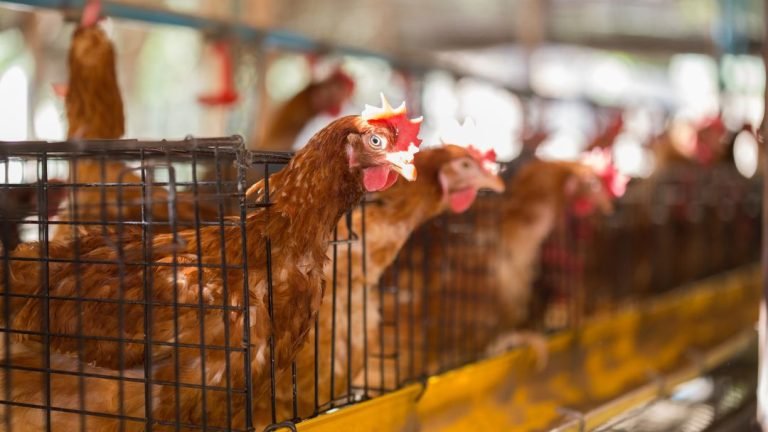Power outages can occur for various reasons in our houses, such as natural causes, human error, and overload. Lightning, high winds, freezing rain, snows, etc., are common reasons for power going out. But can a power outage affect the operation of an egg incubator?
A power failure is less likely to affect the eggs’ hatchability if the electricity returns within 12-14 hours. But when it continues for several days, use an alternative power source to run the incubator. Otherwise, it will affect the hatchability of the eggs.
Can Power Outage Affect Eggs Inside An Incubator?
It generally depends on how long the power failure last. If the electricity comes back within 12 hours, it is less likely to affect the eggs’ hatchability.
But if the power outage last more than 12 hours, the hatchability of the eggs may decrease gradually.
If the electricity doesn’t come within 24 to 48 hours, it will delay the hatching by a few days. The hatchability may significantly reduce by 40% to 50%.
You should try alternative options when power is less likely to return within 12 hours. Look for your neighbor or friend areas if they have electricity.
You can request them to keep the eggs inside an incubator. Make sure to carry them carefully.
Use original store-bought cartons to transport them. Then, immediately place all eggs inside the incubator. Don’t forget to set up the incubator correctly based on the requirements.

How Long Can Egg Incubator Go Without Power?
It is best to run the incubator within 12 hours after the power outage. The more you delay, the lower will be hatchability.
The optimal temperature inside the incubator starts declining as the power goes off. Keeping the temperature within 99.5-102.5 degrees Fahrenheit is vital to ensure proper embryo development.
The embryo may develop poorly if the egg incubator stays out of electricity for more than 48 hours. Their hatching ability may dramatically reduce.
You want to manage another alternative source for powering the incubator if the electricity will not come within one day.
What To Do With An Egg Incubator During The Power Outage?
The followings are steps to follow when an egg incubator doesn’t have electricity for several hours.
Step 01: Noting Down The Time
The first substantial job is noting down the time when the electricity goes off.
You can write it down on your smartphone or a notebook. This allows you continuously track how much time has passed.
Talk with nearby neighbors and determine if they also have a power cut. Also, learn why the power outage occurred and how long the electricity may take to return.
Wait for 1-2 hours. If the electricity doesn’t come back, jump to the next steps.
Step 02: Removing The Incubator Lid
When the power doesn’t return within 1-2 hours, remove the cable from the main switch and remove the incubator’s lid from the eggs. Keep it aside.
It will cool down the eggs. Plus, the embryo metabolism rate will slow down. As a result, the overall growth will be a bit slower too.
But what to do when the outside weather is too cold? You might be trying to warm up the eggs. We don’t know how much you will be a success, though.
Failing to keep the eggs warm enough may affect embryonic development. The embryos may develop more abnormally than regular ones.
Step 03: Ensuring Enough Ventilation
Some chicken keepers use blankets to wrap eggs. It can interfere with the egg’s ability to exchange gases and regulate its temperature.
Eggs need to breathe, and the exchange of gases is necessary for proper development.
Wrapping eggs with a blanket can also cause them to overheat or cool down. It will lead to improper development or death of the embryo.
They may feel suffocate and die from a lack of oxygen. Ensuring enough ventilation for these eggs is necessary during the power outage.
Once the electricity returns, close the lid. Turn on the incubator and let it run normally.
Don’t forget to check the temperature and humidity level. Also, add enough amount of water to the water pot.
Can Power Outage Affect The Hatchability Of Eggs?
One of the key points already mentioned is the duration of the power outage.
If the electricity returns within 12-14 hours, it won’t significantly affect the hatchability of the eggs. It will only delay the egg-hatching duration.
But another key aspect you can’t overlook is the growth level of the eggs. If you have recently kept the eggs one to two days age, they are in the beginning stage.
You can cool off these eggs and keep them in ‘sleep mode’ to protect essential molecules from damage. This will ensure a state of suppressed or retarded embryonic development
Likewise, if it has already passed 19 or 20 days, chicks may automatically come by breaking the hard shells of their own to adjust their body temperature.
However, if only 7 to 10 days are passed, it can significantly affect the eggs’ hatchability.
What To Do If Power Failure Occurs In The Future?
Most of the time, people have no control over power outages. But you can do the following actions to increase the chances of hatchability of the eggs.
01. Connect The Incubator To A Surge Protector
Egg incubators are a bit delicate electronic devices. They may get damaged on a power surface.
You can connect your egg incubator with a surge protector to protect it from getting damaged by absorbing increased power.
02. Install A Small Generator Or Solar Panel
A small portable generator with a 200-300 watts power output should be sufficient to run an incubator. Their fuel consumption rate is around 0.5 gallons per hour.
Alternatively, you can set up a solar panel with a 300-400 watts power output. But it appears practical if you are living in a hot environment.
03. Use A Kerosene Powered Incubator
Do you live in a rural area where electricity failure is pretty common?
If so, you can buy a kerosene-powered incubator. It generally utilizes kerosene oil as the energy source to create a convenient environment for hatching eggs.
You can operate the kerosene-powered incubators steadily if the power failure is predominant in your location.
How Do You Incubate Eggs Without Electricity?
You can use alternative approaches if you can’t manage a generator or solar panel to run your incubator, and the electricity is less likely to come back within several days.
There is no guarantee they will work. But it is still worth trying to save your eggs as you have no alternative options.
01. Solar Cooker
One of the eco-friendly methods is using a solar cooker for warming and incubating eggs.
Place the eggs in a suitable container that can fit inside the solar cooker.
Don’t use a too-large or too-small container. It may otherwise affect the temperature and humidity levels.
Cover the solar cooker with its lid or a transparent cover to trap the heat and maintain the temperature inside the oven.
Adjust the position of the solar cooker or the angle of the lid or cover to ensure that the oven receives maximum sunlight exposure throughout the day.
02. Campfire
Another method of incubating eggs is using a campfire. Maintaining the proper temperature and humidity levels required for egg incubation can be difficult.
You should only try it when you have no alternative option. Here are the steps to follow:
Step 01: Build a campfire in a safe and secure location, away from any flammable materials or structures.
Step 02: Create a suitable incubation environment for the eggs by digging a shallow hole in the ground, approximately 6-8 inches deep and wide enough to accommodate the eggs.
Step 03: Line the hole with a layer of dry grass or hay to provide insulation and prevent direct contact between the eggs and the soil.
Step 04: Position the eggs inside the hole, ensuring they are evenly spaced and not touching each other.
Step: 05) Cover the hole with a layer of dry grass, hay, or soil, leaving a small opening to allow for ventilation.
Step 06: Build a fire on top of the covered hole, using small sticks and twigs to create a small, controlled flame.
Step 07: Monitor the hole’s temperature regularly, using a thermometer, and adjust the fire as necessary to maintain the proper temperature of approximately 99-101 degrees Fahrenheit (37-38 degrees Celsius) required for egg incubation.
Step 08: Monitor the humidity levels inside the hole using a hygrometer or by observing the condensation on the hole’s walls. If the humidity is too low, sprinkle water inside the hole to increase it.
How To Prevent Egg Incubator Power Outages?
If the power failure occurs from human errors or overload, you can prevent it. The followings are the top tips to minimize the chance of power outages.
01. Select A Safe Power Source
Invest in a reliable power source for your incubator, such as a surge-protected power strip or an uninterruptible power supply (UPS).
More importantly, the power should have enough capacity to cover the incubator’s electrical requirements.
02. Regularly Maintain Your Power Source
Don’t forget to perform regular maintenance tasks on your power source.
Replace the UPS batteries when they fail to provide enough backup.
In addition, keep the power strips from any debris or liquid spills. Clean them at least once a week. This will ensure smooth functionality.
03. Check Your Electrical Connections
Make sure the electrical sources connected to the incubator are secure and well-fitted.
They should not be loose and dirty. Otherwise, it may cause power failure.
04. Avoid Overloading Circuits
Sometimes, you might be using too much electrical equipment with a single power source. It may cause overloading.
Either increase your electricity’s power rating or use a separate power source to run your egg incubator.
05. Monitor The Weather
Be aware of any potential weather conditions that may cause power outages, such as storms or extreme temperatures.
Consider taking precautions, such as having a backup generator or relocating your incubator during severe weather.
Closing Thoughts
Incubating eggs through incubators is not free from hassles. All your valuable time and efforts will be worth it only if you successfully hatch most eggs.
One of the critical tasks is maintaining a constant supply of power sources to let run the egg incubator continuously. This will help you keep the optimal temperature and humidity.
When the egg incubator faces a power outage for over 12 hours, manage an alternative source to run it unless the electricity returns.



